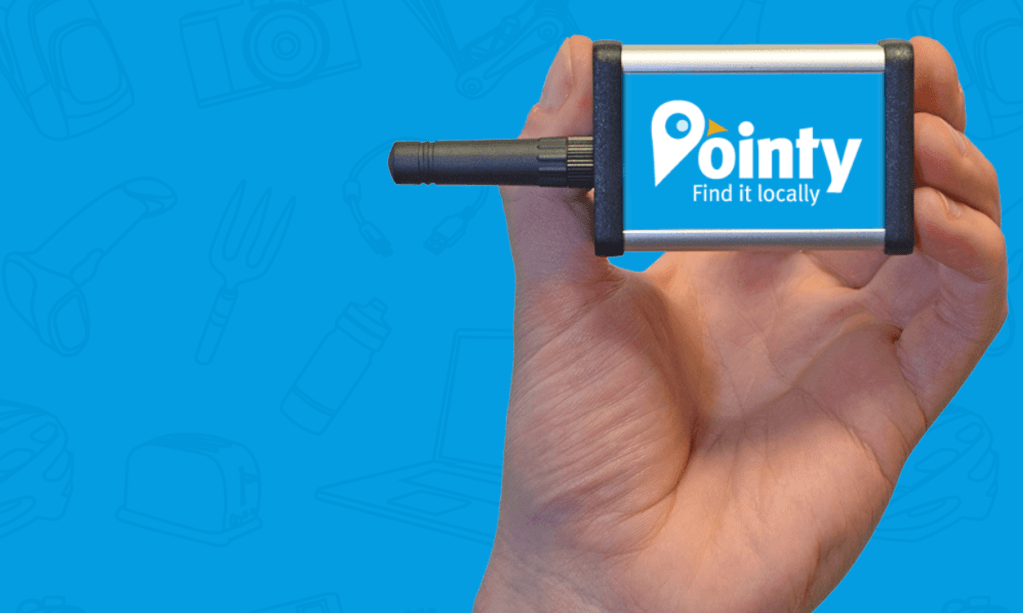Google has been on a long-term mission to build inroads into the world of e-commerce by working more closely with brick-and-mortar retailers, and now it looks like it plans to extend that work a little further. The search giant is acquiring Pointy, a startup out of Dublin, Ireland, which has built hardware and software technology to help physical retailers — specifically those that might not already have an extensive e-commerce storefront detailing in-store inventory — get their products discoverable online without any extra work.
The companies are not disclosing the financial terms of the deal, but a source tells us it is €147 million ($163 million).
We’re told that Google will be making a formal announcement in about an hour, but Pointy has already posted the news on its own site while we were digging around for details after getting pinged by a source. The deal is expected to close in the coming weeks, pending “customary closing conditions.” (Update: Google’s post confirming the acquisition is now here.)
Pointy is continuing to operate post-acquisition. “We look forward to building even better services in the future, with the backing of Google’s resources and reach,” the company writes. It’s not clear yet who will stay on with that plan.
A source notes that this was a “good outcome” because Pointy has a “one of a kind” product that didn’t really have any comparables in the market. Pointy had also managed to pick up quite a lot of traction as a small startup, working with around 10% of all physical retailers in the U.S. in certain categories (pets and toys were two of those, I was told).
Pointy is six years old and had raised just under $20 million from a variety of investors, including Frontline Ventures, Polaris, LocalGlobe and individuals like Lars Rasmussen (the former Google Maps supremo who went on to build search and enterprise products at Facebook).
Pointy was co-founded by Mark Cummins (CEO) and Charles Bibby (CTO). Notably, this is Cummins’ second exit to Google. His first company, the visual search startup Plink, was Google’s first-ever acquisition out of the U.K.
For Google, Pointy is a known quantity for more than the fact that it has transacted with a Cummins startup before: Pointy and Google have been working together since 2018, when the former was part of a bigger push that the search giant was making into building tools for brick-and-mortar merchants.
At that time, Pointy’s primary product was a piece of hardware that plugged a company’s point of sale/barcode scanning units, so that every time a retailer scanned its products at the point of sale, it would upload the products online (including quantities of those items), and then keep stock numbers up to date with every subsequent purchase that was made and scanned in. Pointy doesn’t track incoming inventory per se: it uses algorithms over time to figure out stock amounts to a very close degree of accuracy based just on purchasing patterns.
Then, a user who might be searching for that product online might come across those details through Google’s search results (“See What’s In Store,” which come up in Google’s Knowledge Panels and on Google Maps), or via advertisements. The aim: These listings could potentially result in shoppers buying those products from the retailer in question, ideally getting them to come into the store, where they would buy even more.
The hardware retails for around $700, but Pointy also has a free app that integrates with specific POS devices from Clover, Square, Lightspeed, Vend, Liberty, WooPOS, BestRx and CashRx POS, removing the need for the hardware.
Google’s initial partnership with Pointy in 2018 was part of a push to build out Google’s search portal with more e-commerce tools, and it was coming not a moment too soon: Amazon was both ramping up its own efforts with physical retail, and becoming a bigger threat to Google as a first port-of-call for online shoppers.
Two years on, those themes have only grown bigger with Amazon’s rise, perhaps one reason why Google was keen to bring Pointy in-house. Now, it can more deeply integrate the tech, and build upon it.
Pointy had also started to work a little closer with retailers, giving them insights into what was selling well, and what they might want to stock more of in the future, but it had never delved into the actual transaction aspect of products that it was listing online: that was left to the retailer and a shopper visiting a store to buy in person. All of that leaves a wide door open to how Pointy — and Google’s own retail commerce efforts — might develop in the future.
Updated with more detail on price, Pointy’s technology and Google’s confirmation.































Comment